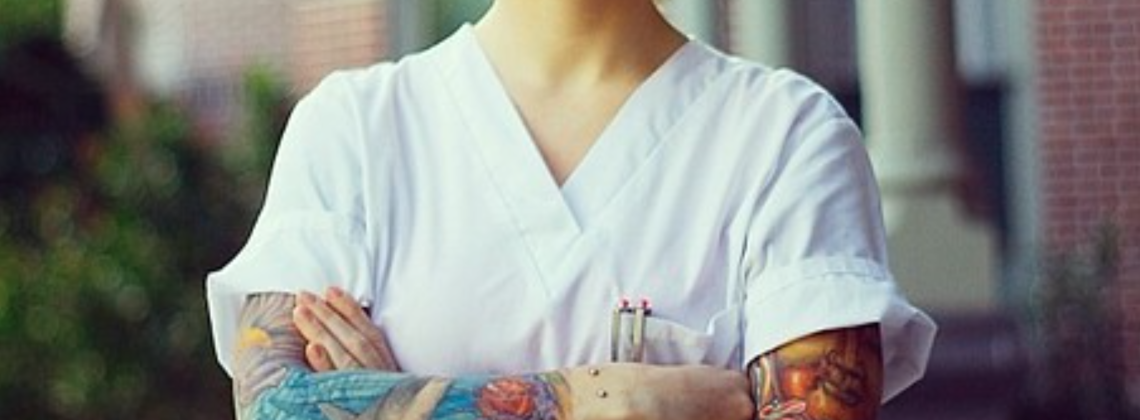

Stay here. Feel this.
Heavy Metal Nursing by Scott Frey. University of Tampa Press, 2024. 89 pp., $16.00
Lucretius said that his poetry was necessary for his difficult message in On the Nature of Things: He compares his verse to honey on the rim of a cup, full of bitter but life-giving medicine. In the case of Scott Frey’s Heavy Metal Nursing, which chronicles the experience of caring for a dying child, the honey is easy to describe: Frey’s poetry is unpretentious, visceral, remarkably good—from the diversity of forms to the arresting lines. In his poem “Prayer,” for instance, water droplets streak shower panels like “prayers down / God’s closed window.” In “Halloween Parade, Children’s Hospital Boston,” Frey’s daughter wears an oxygen mask, a “blue tube like an elephant’s trunk,” as she nudges her glowing costume scepter, “pushing back the shadow with a little bit of glitter.”
Heavy Metal Nursing bears witness to those who cared for Frey’s daughter—including the Metallica t-shirt wearing, heavy metal drum-playing nurse of the title poem—tender caregivers who suffer and serve alongside Frey and his wife. They sing and weep too, with “half howl, half prayer.”
As for the medicine: I read poetry because it invigorates my sense of language and its possibilities. I also read it because I’m a creature of habit and comfort, someone prone to outsource attention to routine, missing what’s right in front of me. So I read poetry for the reason Zadie Smith says she writes: “so that I might not sleepwalk through my entire life.” With their extraordinary attentiveness, poets can orient us toward the world as it is.
But given its subject matter, I undertook this review with trepidation. I’m prone to fret, to wander my house after dark, double-checking the locks, reading the news of the day describing all the harm that can come to my kids. And I have never forgotten the works that reckon with such things. I know Maria Hummel’s “Station” by heart—“Days you are sick, we get dressed slow,” the speaker says about her infirm child—and Aleksandar Hemon’s “The Aquarium,” his essay about the death of his daughter. So the proximity to Frey’s experience was forbidding.
My reservations were warranted. Heavy Metal Nursing captures moments of tender attentiveness—from bathing his daughter to painting her nails. In his poem “Assist,” during his daughter’s physical therapy, he and his wife cup their hands and bump their daughter’s chest and back to help her breathe:
For fifteen minutes
our daughter becomes our drum
and the bump and thrum of our hands
on her flesh becomes a song.
Her eyes open wide with hushed
focus; she smiles in delight,
and for a few holy moments
there is nothing else in the world.
The collection also bears witness to the sudden recollection of his daughter’s “soft curls,” and donating her medical chair—her Kid Kart—after she is gone. There is a narrative of grace here too, based on moments of beauty, slight but unmistakable, as in “New Neighborhood” when Frey and his family visit his daughter’s grave and the children turn the cemetery into a playground, climbing on monuments, tumbling down hills, playing hide and seek. Describing the scene, Frey says, “Typing this my finger slips / from v to c, turns grave to grace.”
It’s the proximity to this kind of love, this kind of grief, that characterizes Heavy Metal Nursing, and like the teachers in Frey’s poem “Learning to See,” the poems say “Stay here. Feel this.” Thanks to Frey’s artistry, such moments will remain with you. Reader beware: Heavy Metal Nursing will break your heart. But you will be better for it.
Robert Erle Barham is Professor of English at Covenant College in Lookout Mountain, GA. He is the deputy editor of Current.